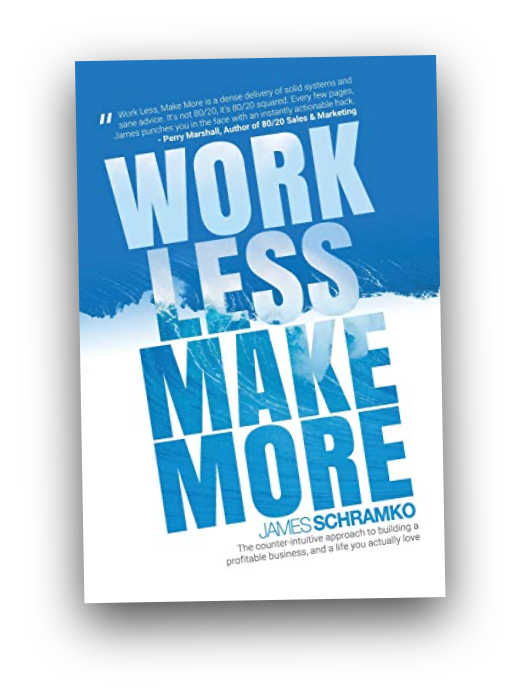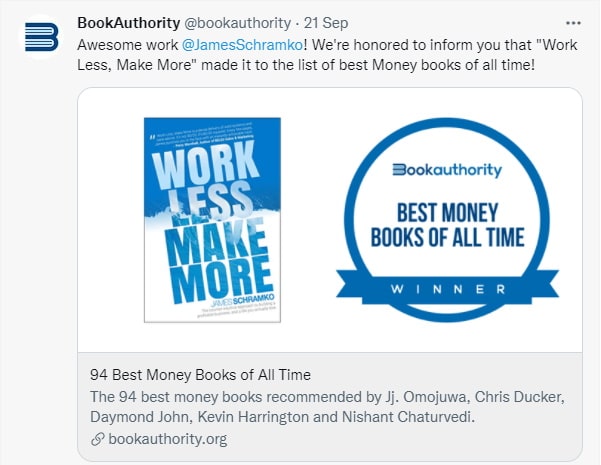Work Less
Make More
By James Schramko

JOHN REESE
“James proves that simple, effective, better strategy for your business produces far greater success (and happiness) than if you focus on ‘hustling’ or what others would call ‘hard work.”
“Work Less Make More is dense delivery of solid systems and sane advice. It’s not 80/20, it’s 80/20². Every few pages, James punches you in the face with an instantly actionable hack.”
PERRY MARSHALL
Author- 80/20 Sales & Marketing, Ultimate Guide to Google AdWords, and Evolution 2.0
JONATHAN MIZEL
“James gives massive value in a fun and easy-to-read book. Real, actionable ways to cut your hours while increasing your income. Want to know how to do it in your own business? Get this and find out!”




